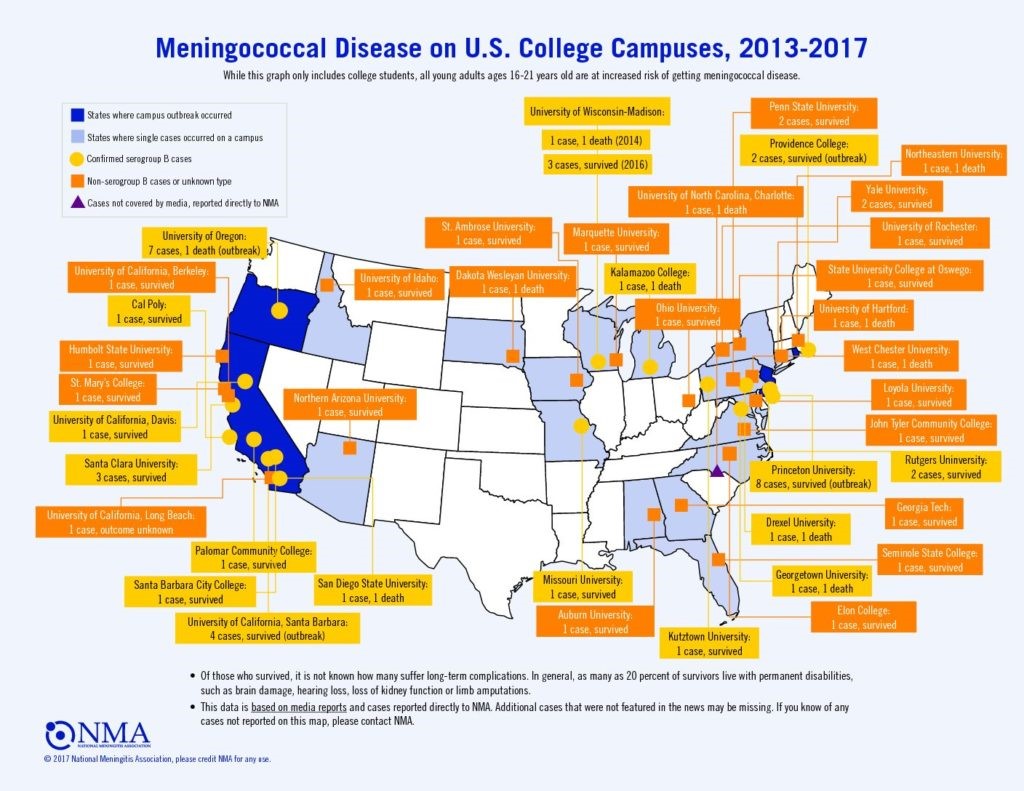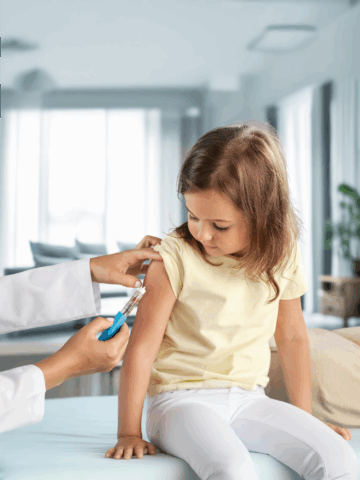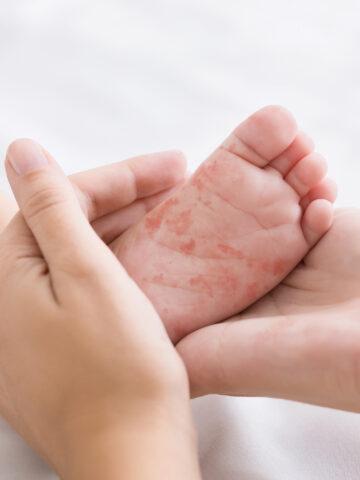By Nina Nosavan and Rosie Korman, pediatric residents at CHOC Children’s
Vaccines are not just important for little ones. Your preteens and teens need to be vaccinated too! It’s important for parents to be aware of vaccines updated that will benefit their adolescents.
Meningococcus (MCV)
Meningitis is a severe, life-threatening illness that begins with fever, headache, and stiff neck and can rapidly progress to coma, multi-organ failure, and death. Approximately 10-15 percent of cases are fatal, and of the survivors, 20 percent can have severe disabilities including hearing loss, brain damage, amputations, kidney damage and other complications. Almost all disease is caused by the five serotypes A, B, C, W, and Y of bacteria Neisseria meningitidis. Protection against four of the five of these serotypes is provided by the meningococcus conjugate vaccine (MCV). The meningococcus conjugate vaccine is recommended for all adolescents after age 11, with a booster given at age 16. This vaccine schedule provides critical protection against this devastating disease during the college years, when meningitis commonly occurs as outbreaks in young adults living in close quarters in dormitories.
The B serotype of meningococcus is not included in the MCV. Protection against this form of meningococcus requires a separate immunization. This vaccine can be given to any adolescent 16 to 23 years of age to provide protection from serotype B during this high-risk period. The serotype B vaccination is recommended to be given in multiple doses; there are two different brands of licensed vaccinations, each with a different dosing schedule. Ask your provider which serotype B vaccine they have available at their clinic, and which dosing schedule they recommend.

Photo courtesy of The National Meningitis Association.
Additionally, children 10 years or older who are at increased risk for serogroup B meningococcal infections should receive the vaccine. This group includes:
- People exposed to a serogroup B meningococcal disease outbreak
- People with no spleens or damaged spleens
- People diagnosed with persistent complement component deficiency
HPV Vaccine
The HPV (human papillomavirus) vaccine protects against HPV infections and HPV-associated diseases such as cervical, vaginal, vulvar, penile, oropharyngeal, and anal cancers and genital warts. HPV is very common; nearly all sexually active adults (both men and women) will become infected with at least one of the human papillomaviruses in their lifetime. The majority of HPV infections are asymptomatic, however, over time the human papillomavirus causes cervical and other cancers. The HPV vaccine has been shown to be incredibly effective in preventing both HPV infection and the subsequent cancers HPV causes. It is most effective if given prior to the onset of sexual activity (and thus prior to HPV infection), though is still highly effective in sexually active individuals. The vaccine is recommended for patients between 9 and 26 years of age.
- Girls and boys who initiate the vaccine series before 15 years of age should receive 2 doses at least 6 months apart.
- Teenagers and young adults who initiate the vaccine series after 15 years of age should receive 3 doses at 0, 1 or 2, and 6 months.
Tdap Vaccine
Infants and young children receive the DTap vaccine to protect against tetanus, diphtheria and pertussis. As they get older, the protection wears off. The Tdap vaccine is a booster that helps to protect your preteen or teen from these illnesses.
- Tetanus (lockjaw) is caused by bacteria in the soil and enters the body through cuts in the skin. It can cause lockjaw, painful muscle cramps, breathing problems, and paralysis. Up to 1 out of 5 people who get tetanus die.
- Diptheria is spread through coughing and sneezing. It causes destruction of tissue in the upper respiratory system that impairs a person’s ability to breathe or swallow. It can also cause heart failure and paralysis. Up to 1 out of 10 people who get diphtheria die.
- Pertussis (whooping cough) is spread through coughing and sneezing. It can cause infants to stop breathing or children to have uncontrollable coughing fits. It can make preteens and teens very sick.
The first Tdap vaccine should be given at age 11 or 12. If your teen is 13 to 18 years old and has not received the vaccine, talk to you doctor right away. This vaccine is also recommended for pregnant women during every pregnancy, and for everyone that lives in the same household as a newborn baby. A variant of this vaccine, Td, is recommended every 10 years for adults.
Catch-up Immunizations
Is your adolescent up-to-date on all their immunizations? Did you know that if your adolescent missed some of his immunizations as a child, it is not too late to immunize? Vaccinations for many common illnesses, including polio, hepatitis A, hepatitis B, varicella (chickenpox), measles, mumps and rubella, all can be caught-up during the adolescent years. Be sure to ask your physician if your child has received all the necessary immunizations, and whether any catch-up immunizations are necessary.
PPSV23 Vaccine
Pneumococcal disease causes infections of the blood, infections of the lining of the brain and spinal cord, ear infections, and pneumonia. Infants and young children should receive the pneumococcal conjugate vaccine (PCV13) to protect against these infections.
The pneumococcal polysaccharide vaccine (PPSV23) protects against 23 types of pneumococcal bacteria and is recommended for children older than 2 years of age with certain medical conditions such as sickle cell disease, HIV infection, chronic heart or lung conditions, or cochlear implants. Teenagers and young adults who have asthma or who smoke cigarettes should also receive this vaccine.





